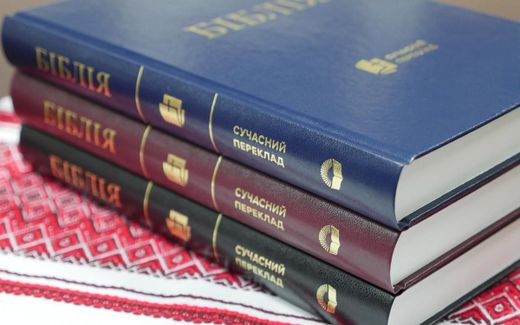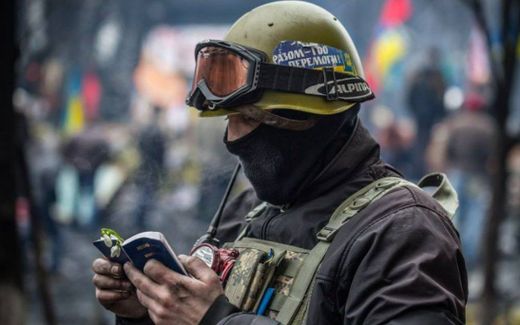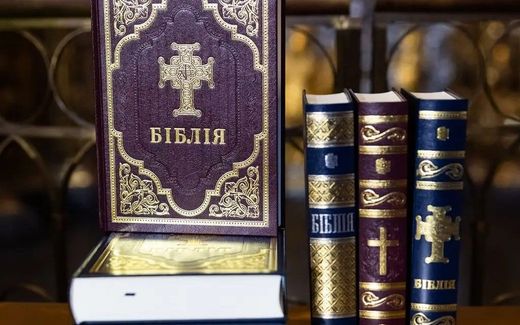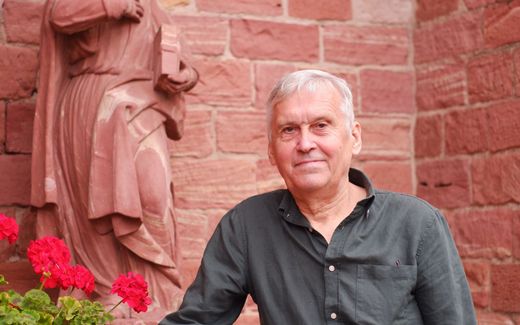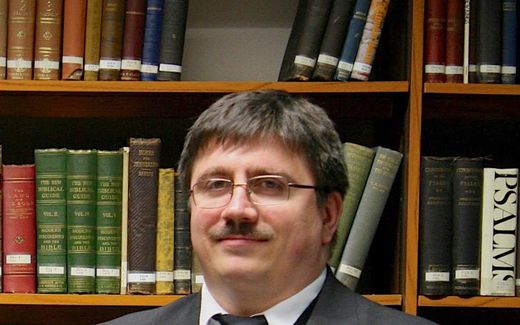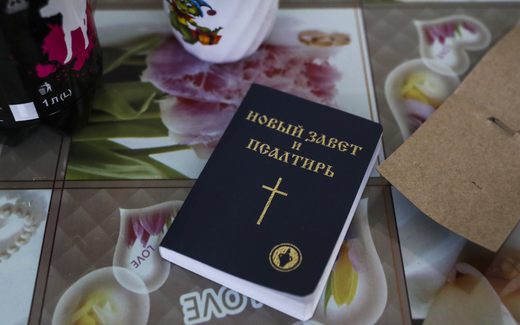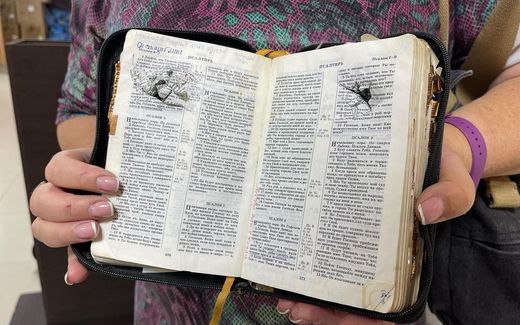Church leaders see spiritual awakening in Ukraine
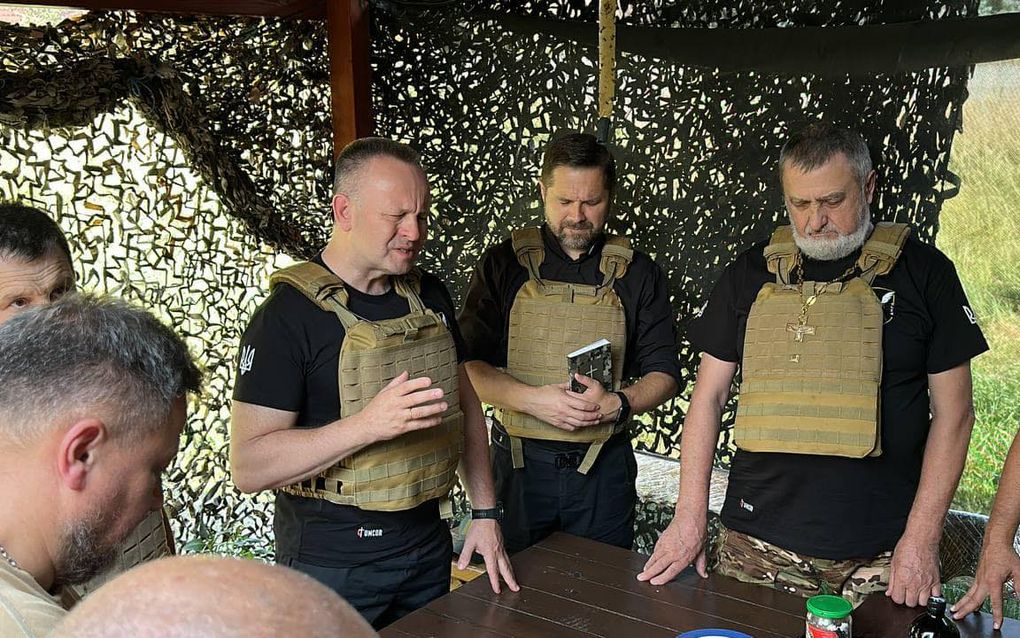
Many evangelical churches see a growing spiritual need in Ukraine. Photo Facebook
Eastern Europe
On Sunday morning, churches in Ukraine welcome newcomers. Even on weekdays, more people come to the evening prayers. Is there an evangelical revival two years after the Russian invasion? Or is it an awakening? Many Protestant leaders see more spiritual need.
“Where shall we start?” asks Yuri Kulavkevich, foreign affairs director of the Ukrainian Pentecostal Church in Ukraine. He is underway from Warsaw to his hometown Kyiv. In a telephone interview with CNE.news, he shares statistics of enormous growth. “We see that more people get baptised than before Covid. That is not only the case in Western Ukraine but also in the East.”

Also, church planting continues during wartime. “Even in the region Charkiv in the East, we have started seventeen new churches in 2023. The same pattern as we see in Central Ukraine. Also, in Bucha, we planted three new churches last year.”
People literally come to hide in the church, says Kyiv evangelical pastor Anatolij Raychynets, also general secretary of the Ukrainian Bible Society. “If there is an alarm, some people go to a church instead of a bomb shelter. Not because the church has a solid building but because this is a place that people trust.”
Many families only come with a mother. “The father is at the front. This is the reality for us in wartime. But the mother comes on Sunday and also during weekdays for the evening prayer. I see that in Kyiv in my own church. But the same I have seen in Lviv in the west.”

Not all churches see growing numbers. Oleksii Blyzniuk, teacher of practical theology at the Evangelical Reformed Seminary of Ukraine (ERSU) and CNE columnist, does not recognise the picture given by others. “We have seen that some more people were converted. The war has certainly opened people’s hearts more than in normal times. Something changed, that is clear. That is a normal process, not spiritual. But I don’t see a revival.”
Blyzniuk finds it difficult to speak for the frontline regions since he is based in the capital, Kyiv. A pastor who is able to talk more about the south is Dmytro Levytskyi, minister of the Scottish Free Presbyterian Church in Odessa. “The number of people that have left the country is higher than the number of newcomers. We had twelve members, eight of whom have gone. But the spiritual conversation has gone to a higher level. People are more sensitive now about how to live a Christ-like life during the war.”
Igor Bandura, vice president of the All-Ukrainian Union of Associations of Evangelical Christian-Baptists, confirms the growth. “We see a tremendous interest in the Baptist churches. There is more openness to the gospel. And there have been more baptisms, too.”

In the year 2022, the Baptist Union counted more than 3,000 baptisms. Bandura does not know the figure for 2023 yet, but “my feeling is that this might be even bigger. There is a different dynamic now.”
In 2020, there were 2300 Baptist churches in Ukraine, with 123,000 members. Of the congregations, 110 were lost because of the occupation by Russia. “But we planted 50 new churches. We sent 500 pastors into the military, of whom 100 serve as chaplains. We ordained 200 new pastors after the invasion. Local churches need ministers to meet the great challenges of the many refugees coming.”
Sofa
Remarkably, the newcomers keep coming to the services. “Instead of sitting on the sofa in front of the TV, people come to church. It shows that your life can change by the grace of the Lord. I also see that many of them join the work of the congregation. This is harvesting time. That brings great joy.”
Kulakevich, obviously, does not know how this will be in the long term. “The war is not over yet. We are still in the midst of it. The only thing we see now is that new people are coming.”
The church is very active in meeting the humanitarian need. “We have many internally displaced people (IDPs). Those IDPs have to start from scratch. Churches are ready to socialise those people in a new place.”
Also, along the frontline, the church is active in humanitarian affairs. “As soon as the army leaves, the deacons go there to help the people.”
Spiritual need
Yuri Kulakevich sees a “deep spiritual need” among Ukrainians during the war. “I hear that from Pentecostals but also from Orthodox priests and others.”
Apart from spiritual questions, there are emotions and traumas. “We have groups for emotional support. Not everybody needs psychological help. Small talk with Christians can do a lot of good.”

Raychynets had several spiritual conversations down in the bomb shelter. “People ask themselves spiritual questions. If something happens to me, what then? That is the question many people have. I have been praying with some of them.”
Distribution
In the 23 months after the Russian invasion, the Ukrainian Bible Society has distributed 975,000 Bibles, general secretary Raychynets says. “In our office, it is just like a bakery. Pastors come for new material as the people come for fresh bread. Volunteers also come to get Bibles for the front line.”
Most Bibles distributed are the new inter-denominational translation presented in the Sophia Cathedral in Kyiv in 2023. “Those are used in all denominations”, says Igor Bandura of the Baptist Union.
The 1800 Pentecostal churches distributed 1.5 million New Testaments after the start of the war on February 24th 2022. Kulakevich: “People come to us and say they need the gospel. We give that together with a food package. Their spiritual hunger is bigger than their interest in the food package. We encourage all churches to reach out.”
The churches usually only give the complete Bible –with both the Old and New Testament– to newly baptised believers. “Otherwise, it would be too expensive.”
Raychynets met a soldier who received God’s Word at the front. “He thanked me for that. He had not been a believer before. But by reading the Bible, he became a Christian. At the age of about 57 years, he started asking faith questions.”

The Free Presbyterians in Odesa saw a decrease in the literature outreach. “Before the invasion, we distributed a lot in the eastern regions, Crimea and Russia. There were many active Protestant churches—all of those cut off from us. We brought several hundreds of Bibles and catechisms to them. But all this fell drastically to the dozens. We are still active around Odesa, in Moldova and Romania.”
Anglo-Saxons
“I speak about awakening”, says Anatolij Raychynets of the Bible Society. “But that is just a word. We see new things happening; that’s the main issue.”
Bandura says, it is not a revival as the Anglo-Saxons would see it. “There have been huge revivals in England and America in the past centuries. That happened on a much larger scale than this. But there is definitively a spiritual change.”
Chaplains
Are the churches able to accommodate the growing flock? Kulakevich: “We have to bring in new ministers for the harvest. That’s clear. Therefore, our seminaries must work hard to provide for this. We do not only need them for new people. But also because we lost dozens of our leaders for the army, of whom some of them serve there as chaplains. Of course, we try negotiating with the army to keep our pastors, but that is not always possible.”
The evangelical Raychynets sees that Christians “do a great job”. “Churches are champions of humanitarian help. The many seminaries are busy equipping pastors and deacons for this. The war does not stop this work; on the contrary.”
Related Articles


